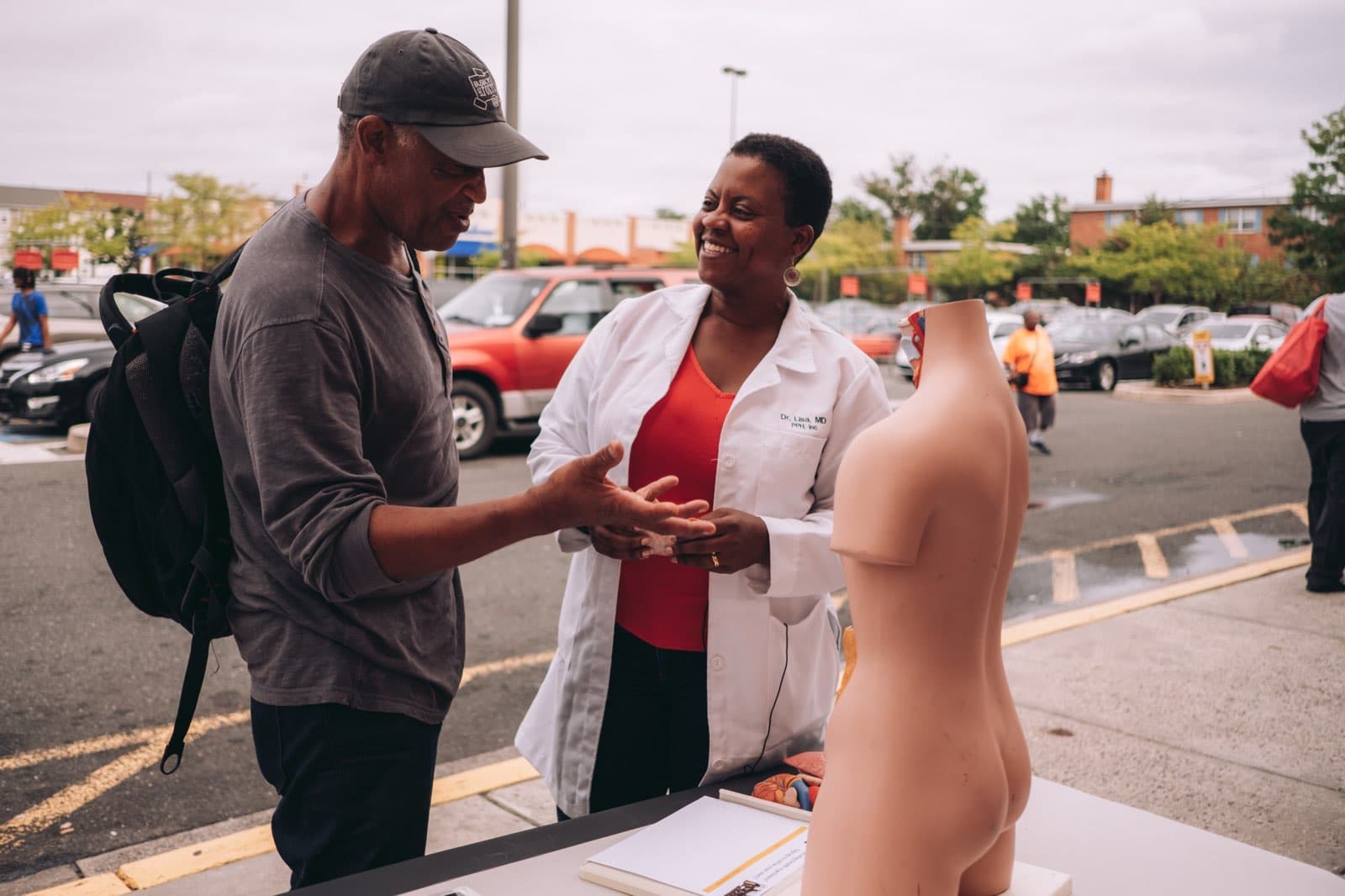
Back in March, Robin Stevens Payes, one of the writers contributing to The American Leader, suggested that we do a profile on Lisa Fitzpatrick, a doctor who has a unique approach to improving health outcomes in low income communities. Dr. Fitzpatrick’s work fit well with our mission, and so, just as the pandemic started to turn everyone’s life upside down, Robin reached out to arrange an interview.
Little did we realize how timely it was to turn our spotlight in that direction: COVID-19 soon began its destructive path through those low income communities that Dr. Lisa, as she is sometimes known, seeks to reach.
It is fairly well-established that improving health literacy also improves health outcomes – primarily because having a greater understanding of what the doctor knows makes people more likely to trust and comply with the prescribed treatment.
Fitzpatrick’s key insight, expressed in her initial interview with Robin, is that large numbers of residents in low income communities often fail to build that trust because their lives lack much, if any, personal contact with the medical establishment. Her point prompted me to consider: Whereas middle class and upper middle class families put their faith in education and are often surrounded by its fruits – doctors and nurses within social circles, and newspapers and magazines both online and offline that carry stories of medical successes and research breakthroughs – the lives of low income families rarely provide the opportunity for such contact.
That’s what makes Fitzpatrick’s work so compelling. She and her company, Grapevine Health, embed themselves in the community they want to reach as a way to establish personal relationships and build trust in real medical knowledge, as opposed to the misinformation that is often circulating “on the grapevine”. It’s like she and her colleagues are grafting a new branch onto that vine.
Unfortunately, the social distancing and stay-at-home guidance of the pandemic has disrupted her efforts. Even if it were otherwise, it would still be a little early to tell how much success she will have. And while her model certainly raises questions about the company’s ability to scale, in this era of the coronavirus, she offers a sensible and hopeful approach to improving health outcomes in low income communities.
* * *
An important part of what we do on The American Leader is provide context for the day’s current events as they relate to our systemic problems. Our storylines are one cornerstone of this effort. In each, we attempt to capture the threads that weave throughout our history and create the tapestry on which today’s struggles play out.
I am happy to announce that we have completely updated our storyline on the expansion of voting rights, bringing it more up to the moment and reorganizing it to be more accessible. With the pandemic straining our ability to vote in person, it is bringing renewed attention to long-standing and distinctly undemocratic efforts to limit who gets to vote. Please take another look and let us know what you think.
Related: Lisa Fitzpatrick: Better Health Outcomes for Low Income Communities, Expansion of Voting Rights
Written by George Linzer
Published on June 30, 2020




